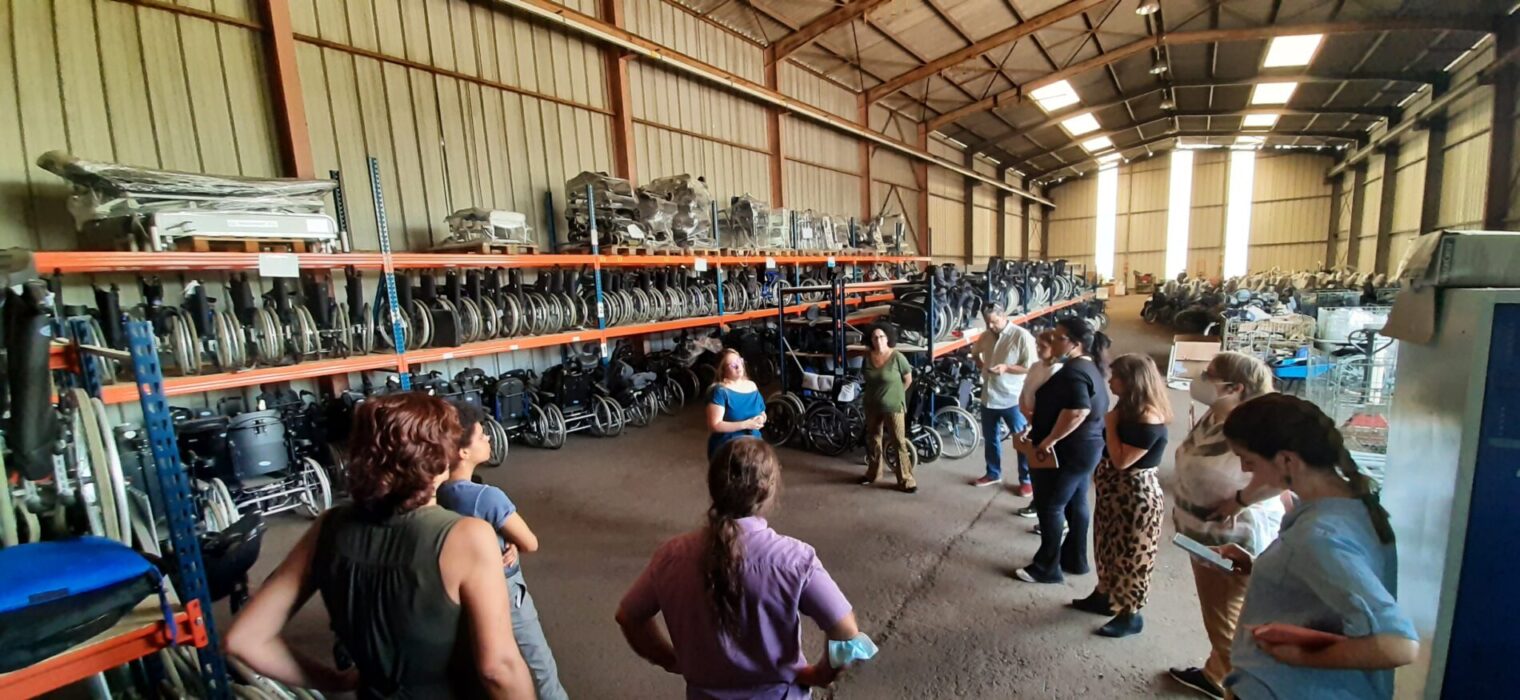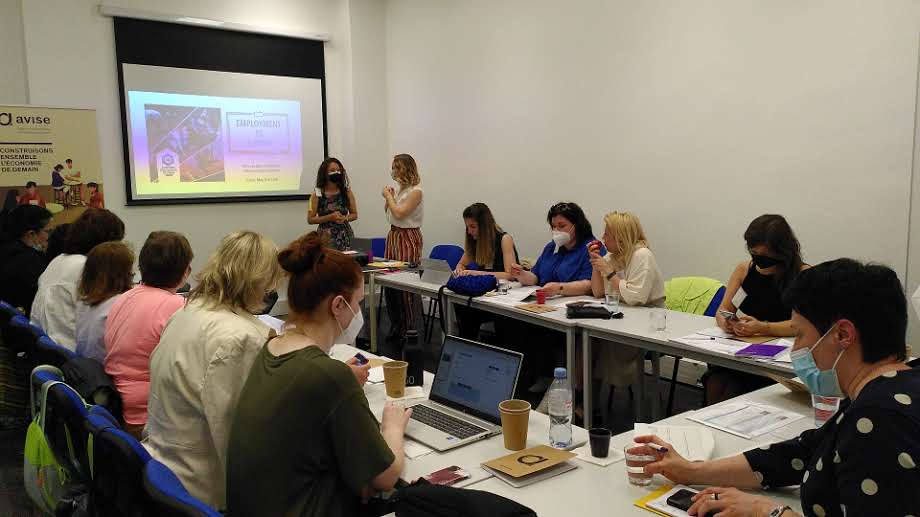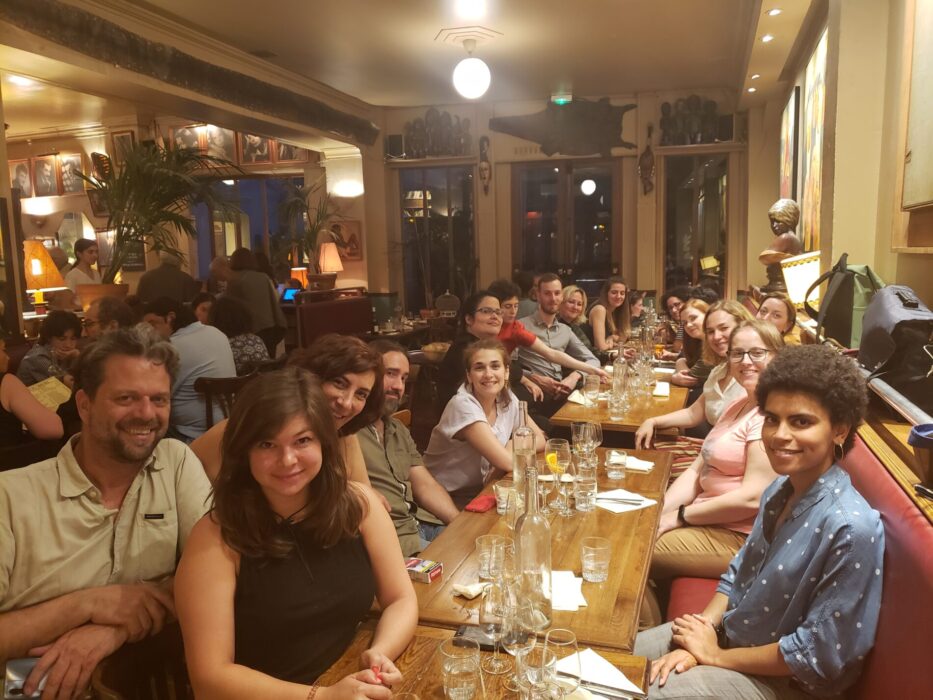The Learning expeditions in France and Sweden
Part 1: French Learning Expedition
As part of WP3, last April and May, 2 Latvian and 8 Spanish pilot-projects travelled to Sweden and France to benefit from the experience of mature social innovation projects who’s project owners were able to share some good advice on how to scale up.
Benefiting from French social innovation projects’ experience in upscaling
From Paris to Toul (in the East of France), the pilot-projects met three mature projects which were able, through different upscaling strategies and advocacy work, to maximize their impact and eventually even influence French law in the past years.
Envie Autonomie – www.envieautonomie.org
Envie Autonomie sells reused medical equipment throughout France that are in good condition, guaranteed for two years and certified at a reduced price so that everyone can afford buying its own medical equipment and in order to promote circular economy.

Caption: Lysiane Serret, Territoriale delegate and Head of Envie Autonomie Lorraine discussing Envie Autonomie’s upscaling strategies and advocacy work with the pilot-projects on Envie Autonomie’s site in Toul, in the East of France.
Territoires Zéro Chômeur de Longue Durée (TZCLD) – www.tzcld.fr
“Zero Long-Term Unemployed Territory” is a project experimenting the right to employment by proving how possible it is for a territory to offer, without extra cost for the community, a permanent job with chosen work time, to every long-term unemployed person.

Caption: Victoria Bazurto, Head of Research and Evaluation, presenting the Zero-Long-Term Unemployed Territory project at Avise’s office.
Samu Social de Paris – www.samusocial.paris
Well known in France since its creation by former French President Jacques Chirac (at the time Mayor of Paris) Samu Social from Paris has been fighting the exclusion of homeless people for 30 years now, by providing day and night assistance and finding adapted solutions to their needs.

Caption: Vanessa Benoït, Director General, explaining the barriers and factors of success to upscaling process of Samu Social de Paris at Avise’s office.
A valuable experience for the pilot-projects
Tips to upscale from a compared analysis between countries
The expeditions provided an opportunity for the participants to discover the different upscaling strategies existing in other European countries, specifically regarding how social initiatives and public services deal with certain social issues as homelessness, unemployment or climate change, at a larger scale.
In France, participants observed how social innovation projects managed to increase their social impact by replicating their model in other territories and/or by doing a strong advocacy work to raise issues at a political level through the leverage of a big network and ultimately to change the legal framework.
“The strategies in France were interesting. As the French legislation requires that 6% of the staff of a company are people with disabilities, businesses have to comply, and social enterprises have acquired good practices to improve their lives that we could implement in our country.”
The three French organizations had very different models and even though to some participants, there was no experience directly comparable to their situation, there were several commonalities and key points which were considered helpful to develop a scalability approach for their projects.
“There were key issues such as the culture of the implementation site, the idea of cooperation and not being perceived as competition, risk identification, etc. which were really helpful.”
Meeting other projects as a way to innovate together
Moreover, each project-owner as part of the BuiCaSuS experiment could finally meet one another face to face and know more about the pilot-projects from his/her own country and from abroad. The 2 days in France enabled them to have peer-to-peer exchanges and would eventually impulse future cooperation, to work together in their homeland or at a European scale. This opportunity gave them the chance to establish a relationship between the 10 pilot-projects.
”My main learning was sharing experience with other organizations or entities.”

Caption: Dinner in Paris between the pilot-projects and BuiCaSuS partners
Next step: online workshops
The pilot-projects attended four online workshops in June and July to work concretely and more precisely on their own upscaling projects. During these, Avise organized sessions around presentations, interventions from different experts and concrete exercises, in order for the implementors and mentors to prepare their upscaling strategy.
The four sessions approached 3 different issues:
- Social Impact Assessment: during this session, participants learned how to identify one’s social impact – in particular through the approach of the theory of change – and how to measure it.
- Upscaling Theory: the workshops presented existing upscaling strategies such as replication and fertilization and allowed the participants to consider which one they could implement. They were invited to define their vision, the reason why they are upscaling and their ambition.
- Business Model – part 1: the participants worked on their Social Business Model Canvas (SBMC) and were asked to identify the replicable elements to compose their core model. They reflected upon the Network’s Missions by defining the relationship between the parent organization and the local branches.





